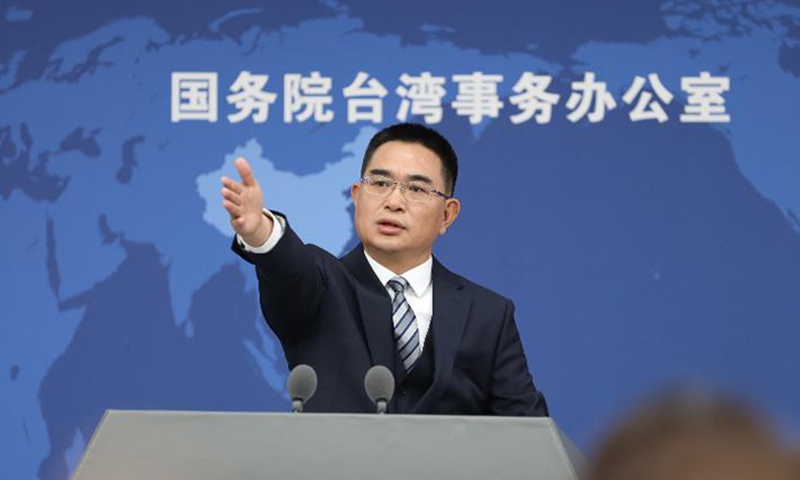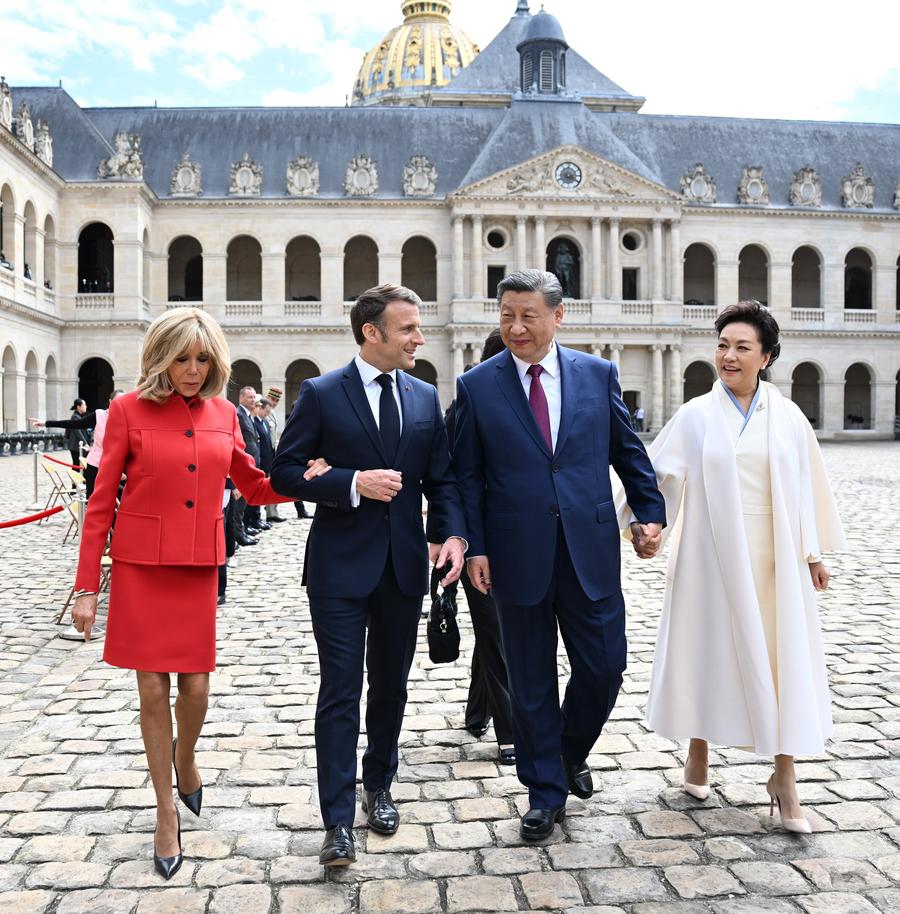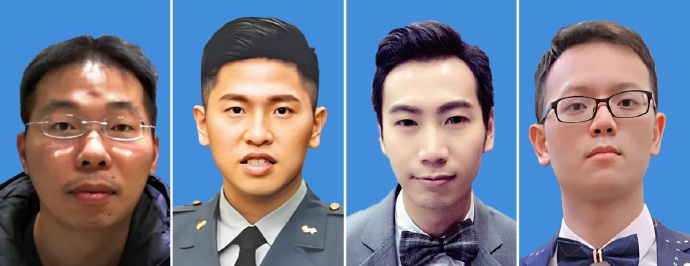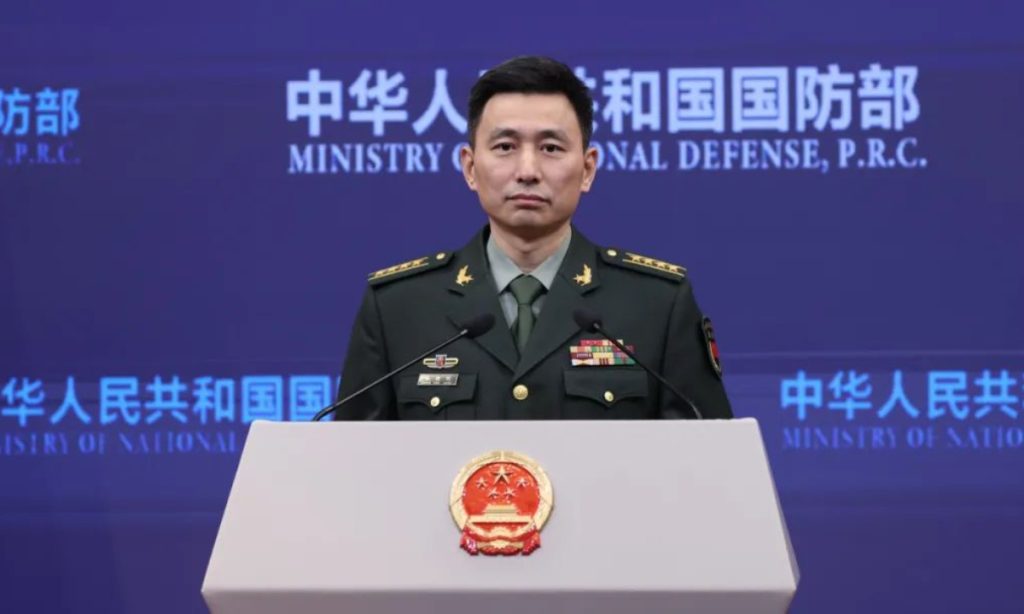Do you know pets can also be treated with Traditional Chinese Medicine?

Zhang Ling (pseudonym) spent nearly half a month searching online for making an appointment with a recommended traditional Chinese veterinary medicine (TCVM) doctor in Beijing after her six-year-old Chinese field dog, Dou Dou, was paralyzed in a car accident.
She initially had no idea that traditional Chinese medicine (TCM) could also be used to treat animals. What surprised her even more was that this form of treatment had become so popular that it was quite difficult to make an appointment with a good TCVM doctor in Beijing.
"At first, I tried to register with a famous doctor in the China Agricultural University Veterinary Teaching Hospital (CAUVTH), which is widely known as the best hospital in Beijing for pets. The registration channel for the doctor's service opens eight days in advance at 8 pm. I logged on to the registration platform a few minutes late, only to find that all the available slots were already full," Zhang, 34, told the Global Times.
Special treatment
Zhang's dog was hit by a car in a small town in East China's Jiangsu Province, where veterinary services weren't equipped to perform surgery on the dog during the "gold 24 hours" after the accident.
Having returned to Beijing after the Spring Festival holidays, Zhang took Dou Dou to see a veterinary neurosurgeon at the CAUVTH and another neurosurgeon who came highly recommended online. "The CAUVTH doctor told me Dou Dou had a slipped disc that seriously damaged a nerve, leading to level-five paralysis - the highest level. At this point, even surgery wouldn't be of much help. The other doctor gave me a similar prognosis and said he could attempt stem cell therapy, but the therapy was still in the experimental with few confirmed successes around the world," Zhang said.
Shortly after these disappointing appointments, Zhang discovered TCVM and held out hope that this form of treatment might help her canine companion.
"Modern medicine often employs surgical decompression to treat a slipped disc. But there is little modern medicine can do for level-five paralysis with loss of deep pain sensation lasting more than 48 hours. For these cases, we have established an acupuncture therapy based on the diagnosis through modern medical neurological function tests, and MRI or CT scans, and, in some occasions, it's even more efficacious than surgery," Chen Wu, a professor at the Beijing University of Agriculture and chief expert in integrated traditional Chinese and Western medicine of the New Ruipeng Pet Healthcare Group, explained to Zhang when she took Dou Dou for his first consultation for the first time.
However, Chen cautioned that "it may be a long process before the dog can finally stand up." This uncertainty weighed a little on Zhang. Nevertheless, given her limited options, she agreed to try acupuncture therapy for Dou Dou for two weeks and observe the results before determining the next steps in treatment.
Rising popularity
On a Friday afternoon in Chen's treatment room at the Chongfuxin international animal medicine center in Changping, Beijing, the Global Times observed Dou Dou's treatment. The canine was placed on a specialized treatment bed covered with grid cloth. His four legs were placed through the openings in the cloth to prevent him from moving. Chen used alcohol-soaked cotton swabs to disinfect some acupoints below the dog's waist and between the toes of the dog's paralyzed hind legs.
Chen then deftly inserted fine acupuncture needles into the pug's acupoints and attached electrodes to the needles to deliver controlled electrical currents. The pug's legs twitched regularly in response to the electrical stimulation.
According to Chen, TCVM is a field of medicine in which veterinarians apply the theoretical principles of TCM to the diagnosis and treatment of animals. In ancient times, Chinese people did use TCVM to treat animals, mainly focusing on horses on the battlefield and oxen used for farming. In modern times, TCVM has also been modified and integrated with Western medicine, spreading as far afield as the US and Japan, along with the development and spread of TCM.
The locations of dogs' acupoints are similar to those in human bodies compared to other animals, making the acupuncture therapy effective for dogs, according to Chen.
After being a TCVM doctor in China for over 30 years, Chen, 59, told the Global Times that he had noticed the increased popularity of TCVM in the country in recent years.
Some pet owners turn to TCVM after Western medicine fails to treat their pets' diseases. Others seek TCVM services as they believe in TCM themselves. TCVM's other advantage over Western medicine is its ability to treat age-related diseases. An increasing number of people seeking TCVM services in recent years do so due to the advanced age of their pets, Chen explained.
Citing an industry report, an article published by the New Weekly magazine on February 27 stated that, currently, there is an upward trend of pet aging in China, with dogs aged 7 (the age threshold for elderly dog) and above accounting for 23 percent of the total in 2024, an increase of 5 percent compared to 2023. It is estimated that in the next three years, over 30 million pets in China will enter middle and old age.
With the rising trend of pet aging, the issues of aged pet care and daily pet healthcare have gradually become focal points of concern for pet owners. This brings about new opportunities for Chinese TCVM practitioners.
"Our vision is to establish an authentic TCM institution for pets, integrating traditional medical philosophies into daily pet healthcare," Wu Yingjiu, the 59-year-old funder of the first TCM clinic for pets in Chengdu, Southwest China's Sichuan Province, told the Global Times.
According to Wu, the clinic, named Wang Miao Tai Yi Tang, which means medical hall for dogs and cats, handles about 10 in-person consultations and dozens of online assessments daily. Its services range from customized herbal formulas and acupuncture, to post-operative rehabilitation and preventive care.
"Most of our patients are senior pets with chronic conditions or mobility issues, and some others are diagnosed with difficult diseases. Poodles, French Bulldogs, and Corgis are among our most common patients," Wu said.
"Like human TCM practitioners, we customize treatments, different formulas for different conditions," Deng Xurong, a TCVM doctor at Wu's clinic, told the Global Times.
The applicable diseases for TCVM include neurological disorders, musculoskeletal issues and muscle problems, as well as various types of ascites, skin diseases, and miscellaneous diseases, particularly in cases where long-term Western medical treatments have not been effective. Compared with Western medications like antibiotics or steroids, herbal TCM medications also offer gentler interventions with noticeable effects, Deng said.
Integrated approach
After four rounds of acupuncture treatments, Dou Dou's reaction to electrical stimulation improved. But Chen told Zhang that the improvement was far from an indication that the dog would stand up in near future, saying two months. In the next stage of treatment, more rehabilitation methods would be incorporated to exercise and strengthen the muscles of the dog's paralyzed legs.
According to Chen, it has taken up to a year and a half for some level-five paralyzed dogs that he's treated to stand up and walk again.
Zhang decided to continue the acupuncture treatment while incorporating rehabilitation exercises. She did not make the decision without hesitations. "I have seen with my own eyes some improvement from the acupuncture therapy, but, in fact, I was still not sure what effect, if any, that acupuncture had. But it seems like it is the only thing I can do for the dog now," she said.
For pet owners like Zhang who still remain skeptical about TCVM, Wu told the Global Times that he understands that TCVM is still an unfamiliar concept for the majority of the public.
He believes the greatest advantage of TCVM lies in its fundamental regulation and preventive care before disease onset. For acute and critical conditions, he would recommend pet owners seek Western medicine for symptom relief first, followed by TCVM for long-term diagnostic treatment.
As a practicing doctor and professor in TCVM with 30 years' experience, Chen said "Traditional Chinese and Western veterinary medicine each have their strengths, but neither is perfect on its own. It is necessary to learn from each other's strengths and develop in a complementary manner. Some diseases are well suited for TCM, while others may require Western medicine first."
Additionally, some conditions benefit from a combination of both approaches. Only by integration can we provide the best options for animal health, the doctor said.
An integration approach would also help to prove efficacy and win TCVM international recognition, according to Chen.
For example, Chen's team had conducted animal experiments to reveal the scientific mechanisms of acupuncture in the treatment of intervertebral disc disease. Under the same diagnostic criteria with Western medicine, the team uncovered the effects and mechanisms of acupuncture in treating intervertebral disc disease in dogs. This has further enhanced the understanding of the clinical value and scientific basis of acupuncture among international veterinary field, he noted.
In fact, as early as in 1974, the International Veterinary Acupuncture Society (IVAS) was founded in the US to promote the use of veterinary acupuncture and to increase education in this modality. At this time, there were 80 members of the society, according to the society's website.
The society also provides certification courses in veterinary acupuncture and veterinary Chinese herbal medicine to applicants.
Chinese TCVM practitioners have also taken action to promote the industry's development in its birthplace.
A public welfare initiative for the inheritance and development of TCVM launched in 2017 by Chen and other practitioners has trained over 8,000 key clinical practitioners in pet TCM across the country.
In China, the uptake of TCVM is still low in the curriculum of veterinary universities, and the training of TCVM professionals still needs to be strengthened. Policies, laws, and regulations to regulate and support the development of TCVM industry is also urgently needed, Chen stressed.



